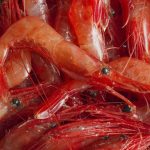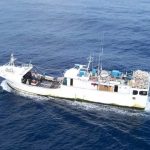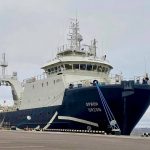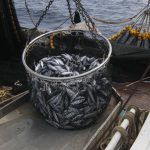The fishery catches about 4,000 tonnes of Baltic herring per year, which is sold marinated mostly to Germany and other EU countries. If successful, products from the fishery will join an increasing range of northern European fish products eligible to carry the MSC eco-label.
Germany is the largest market for MSC eco-labelled fish with seafood valued at approximately 196 million Euro – just over a quarter of the global value of MSC eco-labelled products. The application for assessment is a joint project by the fishery and their client, “Euro-Baltic Fischverarbeitungs GmbH” on the island of Rügen.
Uwe Richter, Chief Executive of German processor Euro-Baltic, comments: “People increasingly want proof that your fish has been caught in a responsible and environmentally sound manner. MSC is a good tool to respond to this demand and so Euro-Baltic and Kutterfisch, our partner in the catching business, decided to apply for assessment to the MSC standard. Kutterfisch catches the herring along the coast of Rügen. The fish is then unloaded right here in Mukran und processed in an MSC-certified facility nearby, meaning that the fish doesn’t have to travel very far before it gets to people in the marketplace.”
Marnie Bammert, MSC’s Country Manager for Germany, says: “Germans love their herring and the MSC label on fish from domestic waters would give people a truly sustainable choice – locally caught and processed herring from a well-managed fishery. I am very hopeful that the application will be successful and that consumers will soon be able to buy MSC-labelled Baltic herring.”








